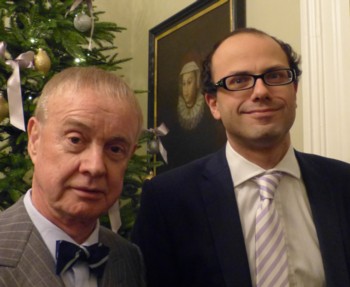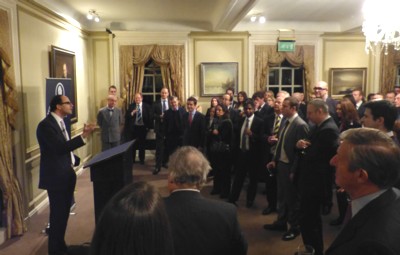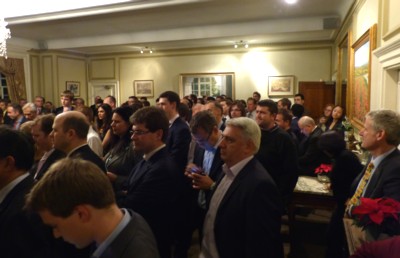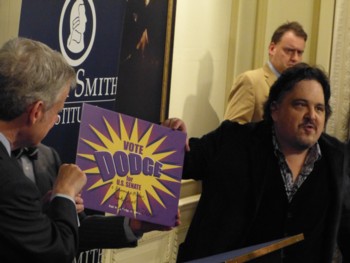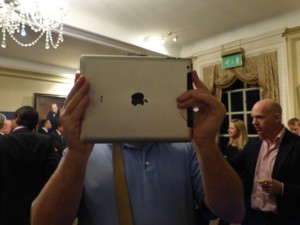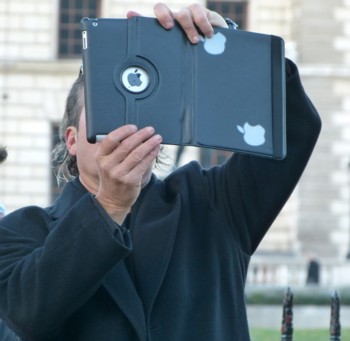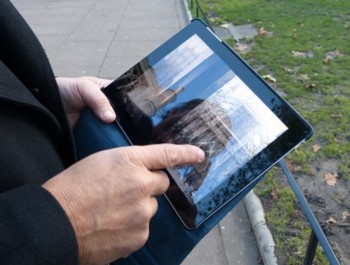We are developing the social individualist meta-context for the future. From the very serious to the extremely frivolous... lets see what is on the mind of the Samizdata people.
Samizdata, derived from Samizdat /n. - a system of clandestine publication of banned literature in the USSR [Russ.,= self-publishing house]
|
It’s the NHS first got me thinking how the power of the narrative distorts so much of how organisations & ideas are viewed. This one starts; “Staffed by dedicated doctors & caring nurses the British National Health Service is the envy of the world…”
It runs for a couple of paragraphs, was first written the day before its inception & has been repeated so many times it’s probably encoded somewhere down in our DNA by now. It’s not just that the public believe it. Almost everyone connected to the NHS do as well. Doctors, nurses, administrators, politicians. Even most of the media. It makes it impossible for any of them to view it with a clear eye.
The incidents quoted above… others much worse we’ve heard about in the last few years… they should be part of the narrative as well but it just rewrites itself over them. Edits them away so the next time comes as exactly the same shock as the one before & the one before that. No-one actually learns any lessons or does anything because the narrative reassures them it’s not necessary. They’re just aberrations. Momentary & inexplicable blips in an otherwise perfect system. Or just signs that even more money needs tipping into it. That the engine that’s coughing & banging & spewing out smoke & broken parts would be running as sweet as a sewing machine with just a little more fuel.
– Commenter ‘Bloke in Spain’
“To some extent the problem is too much rather than too little imagination. With fiat money, and a discretionary central bank, it’s always theoretically possible to have the money stock (or some other nominal variable) behave just like it ought to, according to whichever macroeconomic theory or model one prefers. In other words, a modern central bank is always technically capable of doing the right thing, just as a chimpanzee jumping on a keyboard is technically capable of typing-out War and Peace.”
– George Selgin, as quoted at the excellent Cafe Hayek blog.
Last night I attended the Adam Smith Institute Christmas Party.
Here are ASI President Madsen Pirie and the speaker for the evening, Allister Heath, editor of City A.M., kindly taking the time to pose together for me:
So, there didn’t seem to be any problem about me taking photos. But actually, it rather seemed as if there was. Try as I might, I don’t seem to be able to get away from this theme, in my bloggage of this week.
The most famous personage present was a very recognisable Member of Parliament. And in quite a few of my crowd shots, he is to be seen glaring rather angrily, sideways, at my camera, rather than in the direction he ought to be have been looking, so to speak, as if to say: I didn’t come here to be photoed. I came here to get away from all that crap and to be among friends. Fair enough, no pictures of or naming of him.
Besides which, the public point made by such gatherings, insofar as there is one, and aside from the matter of everyone having a fine old time and fine old natter, catch-up, etc., was not so much the quality of those present, qualitative though it definitely was, as the quantity of that quality. These people were not merely rather impressive. There were a lot of them:
That’s Heath holding forth, and that’s the front of his audience. This is the back of his audience:
Spot the join. Unless my eyes are seriously deceiving me, you can’t. I am pretty sure there is no join to spot, and that there were further people present, to the right of those at the front, and to the left of those at the back. My camera has a gratifyingly wide angle of vision, but was not nearly wide enough in its vision for this gathering, given where I was standing.
As to the content of Heath’s remarks, well, anyone who knows their City A.M. will know that he is in a pretty gloomy state of mind about the immediate prospects of the British economy. There was a copy of City A.M. in the lobby, and I took notes (with my camera) of stories with headlines like UK is facing a lost decade for growth and More Yuletide misery for the City as well as Allister’s own editorial of that morning, entitled Politicians need to stop moralising – and reform our taxes. His editorial today is entitled A case of lies, damn lies and our rocketing national debt.
And as if to match that mood, most of us were dressed in “office attire”, meaning dark and funerial. Even I broke the habits of a decade and dressed funerially. It neither looked nor felt like a Christmas Party. The only thing Allister Heath could think of to cheer us up was to say that for all the governmental mismanagement of our country’s finances, at least technology continues to advance, although no thanks to us. He mentioned, in particular, Google’s robot cars, which is a story that I have been attending to myself for quite some time, and which I intend to blog about here Real Soon Now.
The end of Heath’s talk was hijacked by this guy:
Yes it’s Andrew Ian Dodge, presenting some Andrew Ian Dodge for Senator propaganda to Eamonn Butler, so that Eamonn Butler can exhibit it, somewhere. Now there‘s a man who has no problem about being photographed.
Councillor Harry Phibbs, top right, is not impressed by this pushy American.
This guy, on the other hand, preferred to hide his face behind his iPad:
Well, no not really. He was taking a photo, of me.
Ann Clwyd: my husband died like a battery hen in hospital
Ann Clwyd has said her biggest regret is that she didn’t “stand in the hospital corridor and scream” in protest at the “almost callous lack of care” with which nurses treated her husband as he lay dying in the University Hospital of Wales in Cardiff.
Clwyd, the Labour MP for Cynon Valley since 1984 and Tony Blair’s former human rights envoy to Iraq, told the Guardian she fears a “normalisation of cruelty” is now rife among NHS nurses. She said she had chosen to speak out because this had become “commonplace”.
Describing how her 6’2” husband lay crushed “like a battery hen” against the bars of his hospital bed with an oxygen mask so small it cut into his face and pumped cold air into his infected eye, Clwyd said nurses treated the dying man with “coldness, resentment, indifference and even contempt”.
Owen Roberts died on Tuesday, 23rd October from hospital-acquired pneumonia.
For what it’s worth, my own experiences of watching people die in NHS hospitals have been around as good as it is reasonable to expect such a thing to be. However this is not the first such blast of raw emotion directed against the NHS from a bereaved relative that I have read, merely the first from a Labour MP.
To take another example, Anthony Browne, former health editor of the Observer, and former passionate believer in the NHS, wrote:
Last week’s report into the case of Thomas Rogers, the 74-year-old grandfather who bled to death after lying undiagnosed on a trolley in an accident and emergency ward at Whipps Cross Hospital for nine hours, is shocking. What is even more shocking is that it is hardly unusual. Equally awful stories worm their way out past NHS obstruction every week. And nothing changes.
He was right about nothing changing; the “last week” mentioned in the article was in 2001. I have reposted that article several times over the years. It does not stop being relevant, alas. Again, for what it’s worth, my own experience of Whipps Cross Hospital was quite a lot better than that – I take a forgiving attitude towards the fact that the midwife had to run out into the corridor and yell, “Where’s the fucking obstetrician?”, given that they were trying to deal with multiple women in labour. Things tend to get fraught anywhere when there is a crisis. However the deaths of Mr Roberts and Kane Gorny, who died of thirst due to neglect, or the baby Edward Brown, who was born and died in a hospital toilet while nurses declined to assist because they did not have the training, did not happen as a result of any overwhelming crisis. Whether the problem is that efforts to make nursing more academically prestigious have made some nurses believe it is beneath them to supply the most basic needs of patients, or increased paperwork, or some other factor, NHS nursing care seems to fail more often than it used to. It cannot be because of “cuts”. The last financial year for which there was a reduction in the percentage of central government expenditure devoted to the NHS was 1996/97. And that was one of only seven decreases in all the years since 1950/51. No government has dared blaspheme against the state religion.
For more coverage on The Onion’s Sexiest Man Alive 2012, Kim Jong-Un, please visit our friends at the People’s Daily in China, a proud Communist subsidiary of The Onion, Inc. Exemplary reportage, comrades.
– The Onion adds an update to its story of November 14th. Mick Hartley explains.
As noted in my previous posting last night, I went out photoing photoers last Sunday, and one of the more interesting photoers I photoed was this guy:
That’s an iPad, being used as a camera. I mentioned this to Michael Jennings, and he told me that the first iPad didn’t have a camera built in. The second one did, but it wasn’t very good. Not designed for proper photoing, merely for video-conferencing. But people used it to take proper photos anyway, or they tried to. And on iPad number three, the camera is quite good. Not in the same league as a dedicated camera, but good enough for many, for taking tourist snaps in good daylight and for telling friends what they are seeing.
I know the feeling. If you are a techy, or if whatever you are doing just has to be really, really good, you use the best kit for each job that you are doing. But if you are a civilian, you just love the idea of one machine that does everything for you. There is just one pile of magic to master, just the one gadget to be faffing about with when you are on holiday. I have never used an iPad, but I entirely know why this guy is using his iPad to take photos, rather than a regular camera type camera.
I talked with him. So, using one of those things to take photos, eh? Yes, he said, and he eagerly showed me some of the photos he had just taken, of Westminster Abbey. They looked fine to me, although a regular CSI character could easily work out the man’s identity from his reflected face in this:
He’s not the first iPad (or Tablet or whatever) photoer I have spotted in recent months, just the first who obliged with a good clear pose for me to photo, a pose which obligingly hid his face.
I have been photoing digital photoers for over a decade, and if there is a technological trend in evidence, it is that the range of cameras being used by digital photoers has slowly grown. First, there were the very first digital cameras, like my very first digital camera. Rather big, very expensive and rather clunky, but they worked! Meanwhile the Real Photographers were going digital, with even bigger and massively more expensive cameras, which looked, then as now, just like regular old cameras that used film, and which made use of the same even more expensive sets of interchangeable lenses. Then cameras started to emerge which were betwixt and between (“bridge” cameras) the little ones and the Real Photographer cameras, like my last two cameras, with their ever more amazing zooming abilities. I try to get cameras in focus whenever I can, and in my photos you can see the zoom numbers climbing as the years have gone by, the latest Canon “bridge” camera being 50x!
And while all that was happening, mobile phones were also getting good enough to use as cameras. Just like my iPad Man, Mobile Phoner relishes only having one machine to fret about, to do everything. Hence the ever increasing smartness of smartphones.
It all reminds me of how General Motors worked out, in the 1920s, that the idea of just one basic kind of car for everyone was silly. Instead GM offered a range of cars, to suit all tastes and pockets. But, there never was a Model T digital camera, available only in black, and the camera market is easier to enter, so there never was a General Cameras either. The range rule has prevailed with digital cameras from the start. It didn’t have to be thought of, it just happened.
This range of cameras is reflected in my latest clutch of photoer photos, here (already linked to above). There is the Real Photographer (1.2), or at any rate the photographer using a Real Photographer camera, the guy with the reflecting sunglasses. There are the ever smaller and ever cheaper dedicated digital cameras, often decked out in bright colours (silver (2.3) and red (3.1) in these photos as well as just black). There is the guy using his smartphone (3.3) to take photos (of the man blowing bubbles on the South Bank). There is the 26x zoom camera (3.2). Even the little red camera (3.1) is 10x, as you can clearly read if you click on that one. Tellingly, there are cameras there where it is a bit hard to tell at a glance if they are single fixed-lens or multiple choice lens, bridge or Real.
There must also be another kind of camera being used, to add to all these others, which is the one that is so small and so unobtrusive that it cannot even be seen. These cameras are hidden in glasses, or in buttons, or in hats, or in jewellery. Time was when only the likes of James Bond had such devices, but now, I presume, anyone who wants such a camera can have one. I must have photoed many such cameras, but I will never know about it.
I salute these invisible cameras with particular fervour. They are Little Brother’s answer to Big Brother’s now ubiquitous and very visible surveillance cameras. These invisible cameras are the reason that They will find it so very hard to ban outdoor photography by civilians, however much They might like to and however hard They try, because They won’t be able to see it happening and tell it to stop.
Face recognition is now starting to loom large, and it won’t be long before etiquette changes in response. The internet has been instructed to email me whenever face recognition gets a big mention, and the emails ever since I said to do this have flowed to me in a steady trickle. Face recognition will soon be a Big Issue, and for many it already is. To photo anyone in public will soon be universally understood as like a potential public announcement of exactly where they were, exactly when. I presume that celebrities of ever decreasing celebrity are already hunted down with such software. Now regular people are starting to track each other. Soon, this possibility will be routine. Governments will want to make it illegal for anyone except themselves to behave like this, but I can’t see how they will be able make this stick.
I wonder where my husband was last weekend. I know where he said he was, but … let’s run the programme, and see if anything shows up. Was he in London with that tramp with the pink hat, I wonder?
That young speaker I heard yesterday for the first time seemed like quite a dangerously clever chap, with a potential big future that I disapprove of. So, www, show me every picture you have, and I don’t just mean the ones with his name attached. What does he do with himself? How does he relax? How does he unwind? Give me some dirt.
That kind of thing.
As the memory of the internet grows, people will be living more and more of their lives in a state of perpetual surveillance, of everyone, by everyone. At present, your name needs to be spelt out and attached to such revelations for them to be revelations. But that is fast changing. Soon, your face will be enough.
When I say “soon”, I don’t really know when all this is going to happen, and be seen to have happened. This may already be happening, or it may only really get talked about a decade hence. But happen it surely will. Whereas I only arrange to be informed when the words “face recognition” appear in an internet news story, it is surely only a matter of time before we can all of us say “show me any picture that looks like this person”. → Continue reading: What happens when face recognition becomes the new reality
I left the following comment (that I have expanded slightly) on Natalie’s earlier post, in response to reader Alisa’s surprise at my observation in passing that other British television stations are owned by the government, besides the BBC. I have written about the weird history of British television before, but it is so weird that it deserves a small repeat
Roughly: The BBC had some experimental pre-war broadcasts but launched its permanent service in 1946. This was and is government owned and supported by the licence fee.
In 1955, a second, advertising funded television network came into being called ITV. This was supposedly not owned by the government but had a highly complex ownership structure. Britain was divided into a large number of regions, and the local television station was franchised to a different private owner in each place. (In larger cities, different companies had the right to broadcast on different days of the week and later different times of day). Much programming was national, but a government body was set up to decide which programming was allowed to be broadcast on a national basis. Private companies’ licenses were for seven years only, after which the government held a review and could and sometimes did take their licenses away if they did not satisfy a government defined “quality” threshold. In essence, the private companies controlled the sale of advertising but did not control their own programming.
This arrangement of two channels led to a peculiar piece of British English, in which people will talk about “switching to the other side” when they mean change the channel. TV was perceived as akin to an LP record, with the BBC on one side and ITV on another.
In 1964, the BBC gained a second channel, which was funded by the licence fee just like the first.
In 1982, Channel 4 (and the Welsh version S4C) were created. This channel was and is owned by the government, but is funded by advertising. The channel had an ambit not to cater to the largest audiences but to cater to audiences that were not adequately served (as defined by the government) by existing services. In order to not upset the existing ITV companies, the ITV companies got to sell the advertising for Channel 4, and if Channel 4’s advertising revenues exceeded a certain point as defined by (you guessed it) the government, the ITV companies and not Channel 4 kept the money.
Thus Britain managed to find two largely different models by which advertising funded television networks could be created that did not compete with the BBC and which were controlled by the government.
Rupert Murdoch launched Sky in 1989 (and almost sent himself bankrupt doing it), but it only really became successful in about 1994-5 when it got going with television rights to the English Premier League soccer. This was the first genuine competition that the BBC had ever faced. This, ultimately, is why the establishment in Britain hate Rupert Murdoch so much. He had the audacity to compete with the BBC and to succeed. They will never forgive him this.
As a brief summary of British television since. A fifth analogue terrestrial channel (Channel 5) launched in 1995, after the relevant government bureaucracy expressed great reluctance to issue the licence (refusing to do so the first time it was theoretically put out to tender). This was the first genuinely national and privately owned terrestrial television network in the UK. The various mid 1990s ITV companies were gradually allowed more control over their own businesses and to merge with each other (and the finite life of franchises eventually went away too), a process that finished with the merger of Carlton and Granada in 2004. So as of 2004, Britain had two, privately owned, national television networks, but (for various reasons) neither of them had any money. In a normal market, you would have large, well funded commercial terrestrial television networks that could compete with other companies, but the companies in Britain were so emaciated (deliberately) by the history of regulation that the only real competitor to the BBC was Sky.
A digital terrestrial platform (OnDigital, subsequently ITV digital) was launched in 1998. This featured various channels from ITV, Sky, and other commercial providers, but it went bust in 2002, due to a combination of restrictive regulation – Sky had initially been a co-owner of the consortium, but was forced out from it on supposed competition grounds after the consortium won the licence but before it started broadcasting, and was subsequently required to provide certain programming for it without being able to profit from it in a serious way – and (to be fair) terrible management. This was subsequently replaced by Freeview, which is run and controlled by the BBC, who were refused the licence to run digital terrestrial in 1998, but were allowed to do so in 2003 due to the failure of the previous private option, which was largely caused by BBC friendly regulators.
So non-BBC television is either owned by Rupert Murdoch, owned by the government, or doesn’t have any capital. such as ITV, Channel 5, and various other organisations who broadcast on Freeview.
On top of that, one must observe that S4C is a very weird beast, even in a world of weird beasts. It was set up as the “Welsh” television channel at the time that Channel 4 was introduced in the rest of the UK, and is funded by a mixture of advertising revenue, Welsh specific cultural subsidy, and indirectly via the BBC licence fee. (The BBC has an ambit to produce some Welsh language programming, which it does and then provides to S4C without charge). For many years Wales received this channel instead of the Britain wide Channel 4, whether the Welsh liked it or not. In these days of digital, all of Wales received both channels.
And as for Murdoch, he became powerful because it took as ferocious a competitor as he to find a place within the ferociously anti-competition regulatory framework of the UK. He bet everything to do this and almost lost the bet – in the early 1990s his banks were at one point in the weeks away from calling in receivers. Having won a place inside that regulatory framework, he benefits from the way in which it repels further competitors. One can only console oneself with the thought that the BBC media establishment has the competitor that it deserves. One can also note that Sky’s customers pay a significantly larger sum in total subscription fees than do the BBCs licence fee holders.
Also Sky’s subscribers pay their subscription fees voluntarily, whereas the BBC’s have the money extracted from them by force. (Plus of course, one must pay the BBC’s fee as well before one is allowed to buy Sky’s channels). I won’t comment on which of these things may be more moral.
“And may I say that the exaggerated outrage over the “phone hacking” scandal is particularly hypocritical given the culture of pervasive surveillance of citizens that the British government — ahead even of our own — has established over the past decade or two. Those criticizing the press here are in no position to complain about invasions of privacy.”
Glenn Reynolds weighs in on the the Leveson Report’s recommendation to regulate the UK media. Being a good American living in a land that has a First Amendment – not always well observed – Reynolds is distinctly unimpressed by Leveson. And we Brits should well remember how, if the UK media – or bits of it – are subjected to control, how this will lend some encouragement to authortarians the world over. (This is a fact that some members of the present government, such as William Hague, the foreign secretary, have grasped).
I am not often found defending the BBC or its offshoots, but this is just out of order.
The Welsh Government (for so the lads with the office on the fifth floor of Tŷ Hywel have styled themselves since May 2011 – there’s posh for you) demanded that the Welsh-language TV station S4C give the government a right of reply and refrain from ever repeating an episode of the soap opera Pobol y Cwm because a fictional character said the Welsh government “doesn’t have the backbone” to cull badgers.
Quite rightly, S4C repeated the programme as scheduled.
Like anyone else, the Welsh government has the right to complain if it believes that the BBC has failed in its statutory duty of impartiality as a tax-funded broadcaster, and that includes complaining about fiction. I did so to the point of exhaustion here. But what gave the Welsh Government the impression that it could try to impose impartiality right down to the level of re-writing the script for a particular actress in a soap opera?
The Leveson Report, probably.
|
Who Are We? The Samizdata people are a bunch of sinister and heavily armed globalist illuminati who seek to infect the entire world with the values of personal liberty and several property. Amongst our many crimes is a sense of humour and the intermittent use of British spelling.
We are also a varied group made up of social individualists, classical liberals, whigs, libertarians, extropians, futurists, ‘Porcupines’, Karl Popper fetishists, recovering neo-conservatives, crazed Ayn Rand worshipers, over-caffeinated Virginia Postrel devotees, witty Frédéric Bastiat wannabes, cypherpunks, minarchists, kritarchists and wild-eyed anarcho-capitalists from Britain, North America, Australia and Europe.
|
